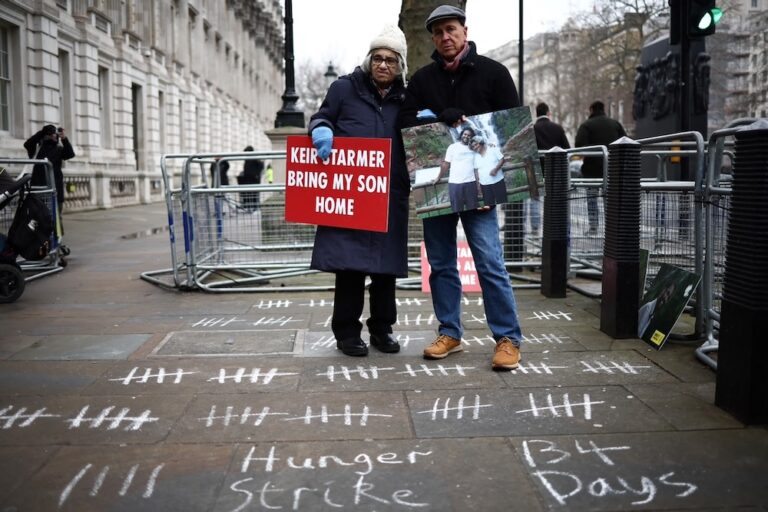(EOHR/IFEX) – The following is a 28 May 2003 EOHR press release: Forgotten After the War Against Iraq EOHR Calls for the Immediate Release of Five Anti-war Activists EOHR expresses great concern over the detention of five anti-war activists who have been detained by the Egyptian authorities since the middle of April. They are: Mohammed […]
(EOHR/IFEX) – The following is a 28 May 2003 EOHR press release:
Forgotten After the War Against Iraq
EOHR Calls for the Immediate Release of Five Anti-war Activists
EOHR expresses great concern over the detention of five anti-war activists who have been detained by the Egyptian authorities since the middle of April. They are: Mohammed Hassan Hassan (student), Wael Mohammed Tawfiq (journalist), Ramz Jihad (student), and Marwan Ahmad. Each of these individuals was detained under the Emergency Law in Bourg El-Arab Prison in Alexandria. In addition, Ashraf Ibrahim Marzouq (engineer) is currently in pre-trial detention in Tora prison, under case #809 (2003). He is charged with filming a demonstration and having certain publications in his possession. He will appear before the State Security Prosecution on 1 June 2003.
EOHR confirms that all these individuals are currently enduring poor prison conditions and are being refused visitation rights. EOHR further confirms that Ashraf Marzouq is being detained along with some 40 other prisoners in a small cell of under 15 cubic metres. EOHR is particularly concerned that there has been no communication with any of these individuals. It is probable that they are being subjected to torture, something they were forced to endure immediately after being arrested and brought to the state security office in Lazoughly, Cairo.
EOHR views the continuing detention of these individuals as a clear violation of the right to peaceful assembly and freedom of expression. Moreover, the organisation views the refusal of the state to grant visitation rights as a violation of national laws and international standards concerning prisoners’ rights. Instances of torture, if proven, would also demonstrate a clear violation of the right to bodily security. Hence, EOHR calls for the immediate release of these individuals, and the granting of permission to lawyers and family members to visit them.
Finally, EOHR would like to emphasize that incidents such as the ones detailed above demonstrate that the Emergency Law is being used in Egypt to violate or suppress the right to peaceful assembly and freedom of expression, and any political opposition. This is contrary to the government’s claim that such practices are only being used in the context of the fight against terrorism.


